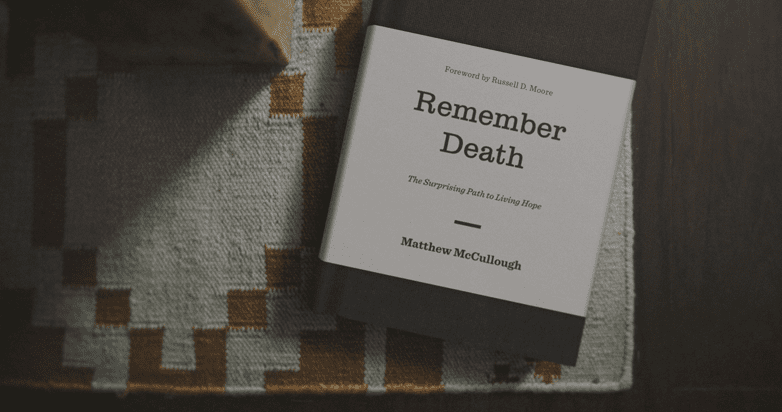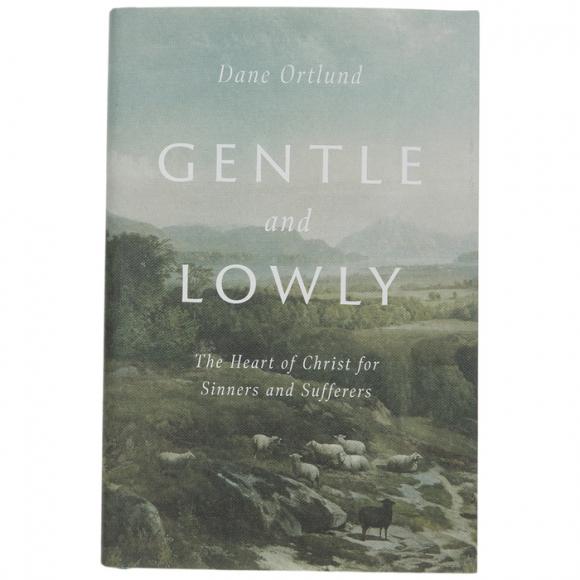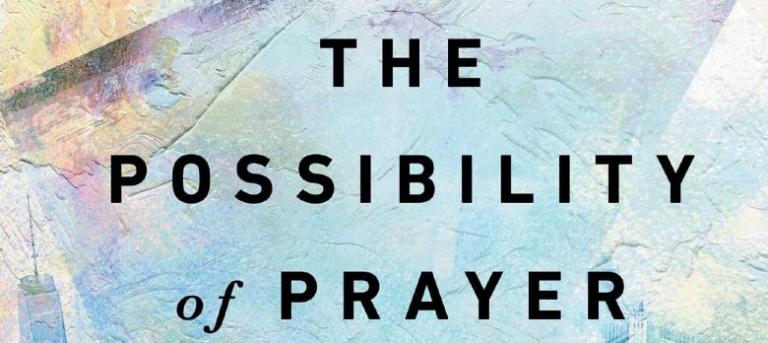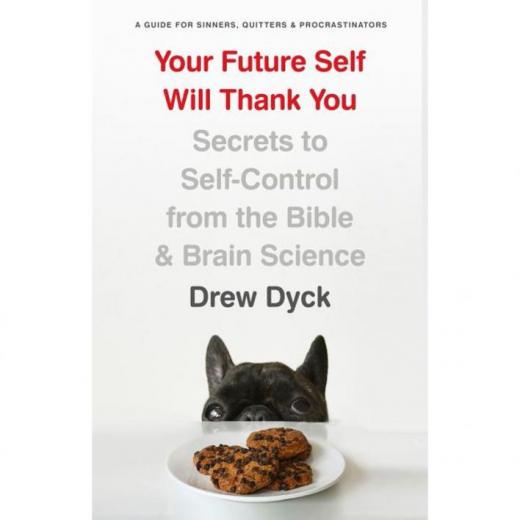
The next time you are sitting around watching a football game with friends or in a group of people in a social situation, get everyone’s attention and say, “You know, we’re all going to die one day.” Then, just watch everyone’s reactions as the fun gets sucked out of the room in an instant.
We don’t like thinking about death even though it’s something we’re all going to face. In his book, Remember Death: The Surprising Path to Living Hope, Matt McCullough helps us understand the reality of death and how living in light of this gives perspective and hope to our lives. When we live with “death-awareness,” we don’t allow our hearts to be tethered to the things of this world in the same way and we gain a greater love for the work that Jesus has done on our behalf.
Remember Death is both sobering and hope-giving. Here were my favorite quotes from Remember Death.
“No one gets out of life alive.” (18)
“Before I can be astounded by God’s love–before I will see the beauty of his love more clearly than the problems of my life–I must see my desperate need of it and my thorough unworthiness of it. When God teaches us to number our days, he protects us from prideful self-deception and enables us to live with genuine, realistic gladness.” (21)
“When the reality of death is far from our minds, the promises of Jesus often seem detached from our lives.” (23)
“Death makes a statement about who we are: we are not too important to die. We will die, like all those who’ve gone before us, and the world will keep on moving just as it always has. No one is indispensable.” (28)
“Death has not just become invisible, swept away into the alien world of hospitals, nursing homes, and assisted living facilities. Death has become unmentionable.” (45)
“Where happiness is always a social obligation, grieving will always be antisocial behavior. At best, we’ll view grief as a sickness that needs to be cured. At worst we’ll view grief as offensive, maladjusted, and even shameful. Where happiness is a social obligation, “morbid” will always be a pejorative term. And those who speak freely of death and its effects will risk mockery, judgment, and alienation.” (50)
“Think of Jesus’ posture towards death (John 11:17-44). When he was confronted by the death of his friend Lazarus, he didn’t tell Mary and Martha to remember that he’s in a better place. He didn’t come to Bethany for a funeral “celebration.” Jesus wept. He was “deeply moved,” even angry. He told them that he is the resurrection and the life, who came so those who believe in him would never die. And then he gave Lazarus’s body new life.” (55)
“The gospel offers a liberating, life-giving alternative to denial and despair. There is no need for denial: death’s implications for who we are provide the crucial backdrop for the work of Christ. And there is no need for despair: union with Christ radically transforms who we are.” (74)
“The quest to make a name for yourself will always be futile because people won’t remember.” (91)
“You never feel like you have enough wealth because you can’t take any of it with you. Death is certain. That means no matter how much you own, you have nothing.” (98)
“The problem of impermanence is simple: with time, everything changes and nothing lasts. Impermanence shows itself all around us, once we’ve learned to see it. It’s in every delicious meal that comes down to the last bite. It’s in every great book that comes to its last page and every great show that comes to a final episode. We see it in the changing of every season and in the coming and going of every holiday. Everything good is temporary.” (120)
“Death spreads its poison through everything we enjoy because nothing we enjoy is ours to keep. Time passes, things change, and eventually everyone loses everything they love.” (121)
“Like a swarm of locusts on a newly sprouted field, time is devouring everything I love in this world.” (127)
“God has promised to do more than remove our sorrow and its cause. He has promised to swallow up death, to cast off the veil, so that he can throw for us a party that will never end.” (132)
“Jesus only makes sense, only tastes sweet, to those who know that what they really need is not more perishable possessions in this life but a deathless life, where joys don’t come into our lives only to pass away.” (140)
“If eternal life sounds other worldly to you, you’re the one not paying close enough attention to this world and its concerns. Jesus focuses on eternal life because he is more attuned to what life is like in this world than those who settle for less. In this world everyone loses everything. Eternal life only seems like a distraction from what you really want or need if you pretend like you’re not dying.” (141)
“Everything we enjoy in this life, no matter how temporary, we enjoy as an appetizer for that feast to come.” (147)
“Few things have more power to steal our joy in what we have than comparing what we have with what others may have.” (162)
“For all our worrying, we can’t change the fact that our lives will end. We’re immobilized by the thoughts of risk, as if there’s something ultimately at stake, but death reminds us that we might as well accept that what we fear is guaranteed.” (168)
“We look to Jesus as a forecast of our story. We look carefully at what happened to him. We see the victory he won over the grave. And we know that whatever may happen to us on our journey–however great the pain of disappointment, or grief, of death itself–we’ve been there already in Christ and we’re headed where he has already gone. We’ve set our eyes on Jesus. And, looking at each other with grief and hope, we simply await our turn.” (183)
Related Posts:
“The Best Quotes from Acedia and its Discontents”











